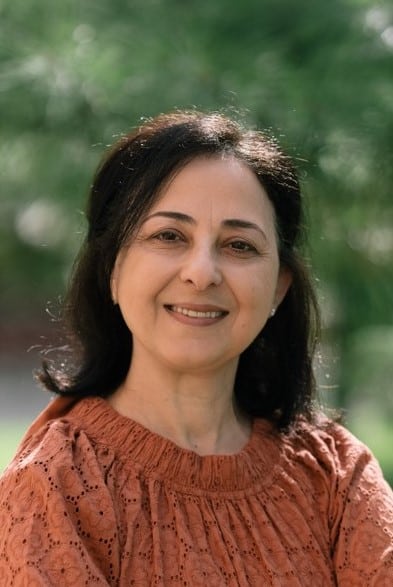Dr. Sana Tibi, an Associate Professor in the School of Communication Science and Disorders, recently collaborated with a team of Canadian researchers at the University of Toronto to investigate the literacy skills of Syrian-Arabic-speaking refugee children. Through this international collaboration, Dr. Tibi, a doctoral student from the University of Toronto, and a team of Canadian researchers published a paper in the journal Reading Research Quarterly, titled, “Morphology and reading skills in Arabic-speaking refugee children.”

With the ongoing conflict in Syria, Canada has resettled a large number of Syrian refugees in their country. The war according to Dr. Tibi, has halted the education of Syrian Children, in turn affecting their Arabic literacy acquisition and development. As an expert in studying Arabic literacy and language, Dr. Tibi used her knowledge of Arabic literacy and validated literacy tools throughout this study.
“Through this project, I was able to make use of some of my validated literacy tools by administering them to a different type of Arabic-speaking population which enhances the construct and predictive validity of these tools,” Dr. Tibi says. “Moreover, the collaborative team found my insight on Arabic literacy, in particular, was very useful in terms of the Arabic literature as well as with regard to interpreting the results.”
Research on the Arabic literacy of Syrian refugees using quantitative methodologies is limited. Dr. Tibi and the collaborative team from Canada specifically sought to investigate the “concurrent and longitudinal role(s) of morphological awareness in Arabic word reading and reading comprehension among Arabic-speaking refugee children.” Morphology and morphological awareness are key constructs in studying any language and essentially have to do with the meaningful parts of words.
“My research aims at understanding the linguistic and cognitive processes of reading Arabic, a language that is typologically different from English,” Dr. Tibi says.
In the study, Dr. Tibi and the team of Canadian researchers were not only able to understand the effects of interrupted schooling, but they also learned how the new educational context (English) affected the literacy skills of Syrian children.
“The sample of the Syrian refugee children is very interesting from a research point of view because, on one hand, it informs us about what happens to one’s native literacy skills once they experience interrupted schooling, and on the other hand it informs us about their literacy skills in the new educational context which is English in this case.” Dr. Tibi says.
The results from their research emphasized the importance of morphological awareness in Arabic reading which Dr. Tibi states has “implications for assessment, instruction, and intervention.” Moving forward, it’s suggested that in Arabic literacy lessons, educators incorporate activities that target decomposing polymorphemic words. In turn, this will help improve different literacy skills such as vocabulary, grammar, spelling, reading, and comprehension.
“Furthermore, because this study allowed for examining the concurrent and longitudinal literacy skills at two points in time, findings not only corroborated previous research I conducted, but also extended the role of morphology in Arabic reading longitudinally above and beyond robust variables such as word reading and phonological awareness, and in a vulnerable population like the one in this study,” Dr. Tibi says.
Dr. Tibi regularly forms international collaborations — in the past, she’s presented to international forums, such as the “Building Forward Better: Transforming Schools of Today” forum which was quoted to have more than 27,000 participants from 85 countries. In many of her research projects, Dr. Tibi focuses on fostering the well-being of children through literacy.
“International collaborations afford the opportunity for researchers to exchange scientific knowledge and contribute to authentic understanding of the findings and how these findings may overlap, or differ, from the existing research,” Dr. Tibi says. “Equally important is the advantage that FSU has experts who are sought after by top tier institutions such as the Ontario Institute for Studies in Education at the University of Toronto.”
To read more about Dr. Tibi’s international research collaboration, click here.

